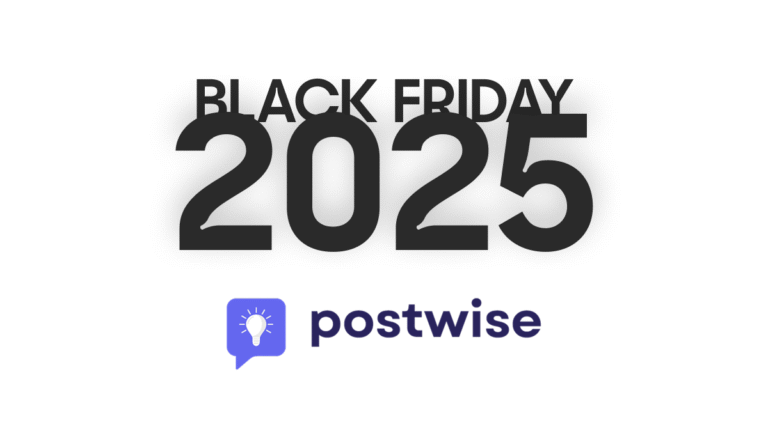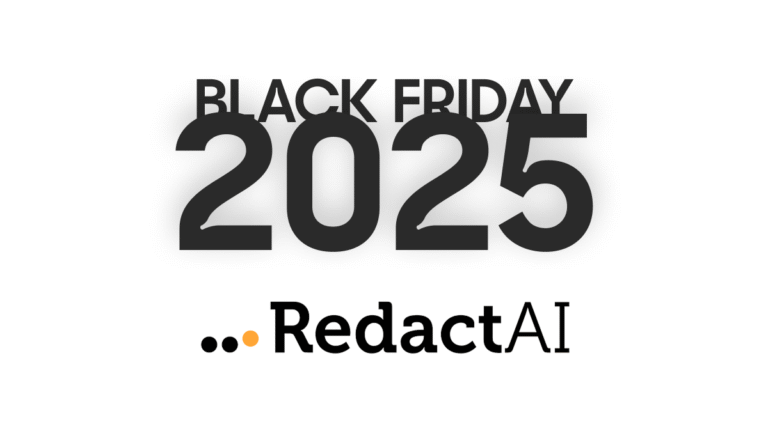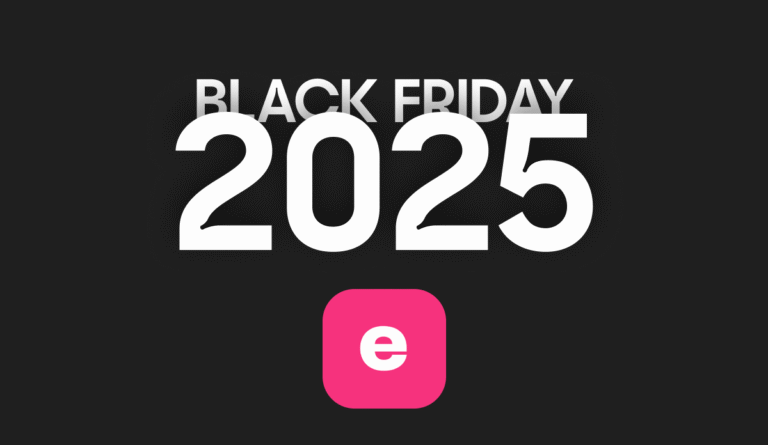84% of individuals rely on online reviews just as much as they do on personal recommendations.
Is your online reputation driving clients away?
We’ve put together a list of 10 online reputation management tools that can help you take control of your digital presence
Let’s take a closer look.
1. Google Alerts
You can manage your online reputation for free with Google Alerts.
Google Alerts is a basic online reputation management tool. It helps you keep an eye on the sentiment around your business by setting up and tracking specific keywords. You can monitor the web, including most social media platforms, for your business or brand name, trademarks, or any other topic that interests you.
You can even track your competitor’s online reputation with Google Alerts.
✅ Google Alerts Pros
- It’s free! You can even use Google Alerts to check the market sentiment before starting a business.
- Keeps your inbox organized by choosing how often Google should send you an email notification as it discovers your keywords online.
- It’s easy to set up and manage.
How to Set Up Google Alerts
- Go to Google Alerts.
- Type in the keywords for which you want to create an alert.
- Click the Show options button to customize it.
- You can select how often Google should notify you, which sources to use, your region, and where Google should deliver the notifications.
- Click Create Alert.
That’s it. You can now track your online reputation and see how potential and existing customers perceive your brand or business.
❌ Google Alerts Cons
- You could miss important notifications if you incorrectly set up the keywords.
- Using Google Alerts may not be enough to manage your online reputation efficiently. In addition to brand monitoring, you should engage with clients, create content, and be active on social media, especially those known for fostering B2B relationships, such as LinkedIn.
2. Determ
Determ helps you monitor your online reputation by checking over 100 million sources, regardless of language. It detects all of your brand or business’s mentions and integrates AI to analyze the sentiment around your business and how it changes over time.

✅ Determ Pros
- It helps you monitor your online reputation by displaying all mentions in a single dashboard. You can filter them by language, location, sentiment type, etc., to ensure relevant results.
- Determ helps you protect your brand reputation by notifying you when sentiment changes significantly. This allows you to address issues before they turn into crises.
- You can focus on specific social media platforms or news sites by choosing the sources you want Determ to track.
- Provides you with insightful analytics by adding detailed information such as source, interactions, race, and engagement rate to each mention.
- Determ has a mobile app available for Android and iOS, so you don’t miss any important mentions.
❌ Determ Cons
- Its most advanced features, such as AI-powered insight, are available on its more expensive plans.
- It doesn’t offer a unified inbox for your social media account, so you can quickly engage with followers or connections.
- The limited number of queries may limit your ability to adjust your monitoring strategy to fit changing circumstances or priorities.
Determ Pricing
You have to contact Determ sales team to get an offer.

3. Reputology
Reputology is an online reputation management tool that helps you track, manage, and analyze your business’ online review from a single instrument panel.
You can track your business’s online reputation as it monitors over 100 reviews, websites, and social media platforms.

✅ Reputology Pros
- Reputology provides you with real-time sentiment updates with semantic analysis technology.
- It automatically emails you to keep you up-to-date with any new reviews. This way, you can quickly address any negative reviews.
- It allows you to make the most of your team experience by assigning individual reviews to the appropriate team members. This minimizes unnecessary back-and-forth communication and ensures tasks are completed efficiently and effectively.
❌ Reputology Cons
- You must pay for a separate tool to reply to reviews within Reputology’s dashboard.
- Limited engagement features.
- Lacks content creation features.
Reputology Pricing
Reputoly pricing plans start at $10 – $49 /month/location and it offers a 7-day free trial.

4. Brand24
Brand24 helps you manage your or your business’s online reputation by tracking keywords from 25 million sources, including social media platforms, blogs, forums, etc. This ORM tool lists every mention of your brand and helps you review and respond in a few clicks.

✅ Brand24 Pros
- It gives you valuable insights into global market trends, customer preferences, and cultural nuances by tracking your brand mentions across 100+ languages.
- It helps you identify relevant results through advanced filters
- Brand24 prevents potential issues by detecting negative brand mentions and warning you.
- It helps you efficiently use resources by checking if the mention is coming from a known author or domain. This way, you prioritize responding to reviews that have the biggest impact on your brand’s reputation.
- With Brand24, you can identify new competitors by monitoring keywords relevant to your industry. You can also use it to study a new market before investing.
❌ Brand24 Cons
- It might be too expensive for smaller businesses.
- It doesn’t integrate a feature that allows you to create social content.
- Its cheaper plans don’t monitor your brand across LinkedIn, Quora, YouTube, or other popular social media platforms.
Brand24 Pricing
Brand24 plans start at $99/month, and there’s a free trial available. However, costs add up when you go over the quota.

5. Reviewshake
Reviewshake is an efficient online reputation management tool that tracks your reputation across 85 review sources, including Facebook, Yelp, Google, Tripadvisor, and more.
Besides keeping an eye on mentions about your business, Reviewshake focuses on generating more customer reviews.

✅ Reviewshake Pros
- Revishake helps you get more reviews for your business by generating landing pages that you can send to former and existing clients.
- It helps build brand trust by automatically posting reviews on Twitter, Facebook, and Google.
- It allows you to better understand your brand or business reputation by comparing customers’ sentiment by region.
❌ Reviewshake Cons
- Can’t shape your brand image as it doesn’t have a content creation feature.
- Might turn into an expensive solution if you go over the plan’s quota.
Reviewshake Pricing
Reviewshake plans start at $79/month and you can test any of its plans through the free trial.

6. Brandwatch
Brandwatch is an online reputation management tool that gathers data from more than 100 million sources to provide detailed insights about your brand’s reputation.
To better manage these mentions, Brandwatch allows you to sort them into custom categories. You can set different priority levels or assign them to the appropriate team member.

✅ Brandwatch Pros
- Brandwatch helps you connect with the right people through its influencer marketing features. Its 30M+ global creators database makes it easy for you to pick the right partner for your next campaigns.
- You can check online mentions and reviews about your brand that go back to 2008, as Brandwatch has one of the most extensive databases among online reputation management tools.
- It helps you track international markets by analyzing and collecting data for sentiment and topics in 40+ languages.
- Brandwatch helps you find the winning marketing strategy by comparing your brand to competitors and industry leaders.
❌ Brandwatch Cons
- You have to pay for a separate tool to create branded content.
- It may not bring you the best results if you’re not skilled at query writing.
- You must go through a steep learning process to efficiently use Brandwatch’s features.
Brandwatch Pricing
You have to contact Brandwatch’s sales teams to find out the price.

7. Mention
Mention is a complex online reputation management tool. Besides tracking mentions about your brand, it allows you to create and schedule posts for Facebook, Instagram, Twitter, and LinkedIn.
Its dashboard helps you engage with leads and clients on Facebook or Twitter.

✅ Mention Pros
- Mentions makes it easy to keep track of your brand through its friendly interface.
- It helps you shape your brand image through post-generation and scheduling.
- Improves your online reputation management strategy by assigning tasks to different team members.
❌ Mention Cons
- Historical data is available only on Mention’s most expensive plan. Without it, you can’t identify patterns and recurring issues that may affect your reputation.
- Limited number of alerts for each plan may restrict your ability to effectively monitor competitors or industry trends.
- You can’t monitor your brand reputation on LinkedIn unless you subscribe to Mention’s custom plan.
Mention Pricing
Mention’s plans start at $49 and there’s a free trial available.

8. YouScan
YouScan helps you monitor your brand’s online reputation closely, evaluate customer feedback, and segment your client’s list by interest, occupation, or demographics.

✅ YouScan Pros
- YouScan notifies you of important mentions of your brand or business so you can quickly solve any issues.
- It helps you understand customers’ sentiment and market trends through in-depth analysis tools.
- YouScan gives you better insights into your customers’ preferences by analyzing user-generated images from over 500K sources.
- You can efficiently filter through gathered data with YouScan’s AI integration.
❌ YouScan Cons
- It has a steep learning curve, requiring a time investment to use all of YouScan’s features.
- YouScan cost might be too expensive for small businesses of freelancers.
- You can’t use YouScan to reply to reviews or engage in other ways with leads or clients.
YouScan Pricing
YouScan plans start at $299/month, when billed manually.

9. Birdeye
Birdeye is a great online management reputation tool for tracking your reputation and engaging with customers through multiple platforms. You can publish, engage, and report on the most popular social media networks such as LinkedIn, Twitter, or Facebook.
✅ Birdeye Pros
- It allows you to focus on what matters the most for your online reputation by creating custom categories.
- Quickly reply to customers’ reviews through Birdeye’s dashboard.
- Not sure what to reply to a customer’s review? Birdeye helps you by providing response templates you can customize to fit your brand voice.
- It helps you increase your business’ review numbers by asking customers for reviews through email, website form, Facebook, text messages, and more.
- Increases your chance of getting more reviews by scheduling when you should contact a customer. It can be right after the sale or after a customized period.
❌ Birdeye Cons
- You can’t test Birdeye’s features for free as it offers no free trial or plan.
- Birdeye plans could be too expensive for smaller or starting businesses.
- Steep learning curve.
Birdeye Pricing
You have to contact Birdeye and provide your business details to find out about its pricing plans.
10. Taplio
The LinkedIn audience has 2X the buying power of the average web audience.
If your clients’ preferred channel is LinkedIn, you should use a LinkedIn-dedicated tool such as Taplio.
Taplio allows you to manage your online reputation by creating branded content, monitoring brand mentions, and engaging with leads or customers.
✅ Taplio Pros
- Content Creation
Do you know your next post’s topic but struggle with writer’s block?
Instead of spending much time researching that topic online, you can use Taplio’s Post Generator. Give it a prompt about your next post, and Taplio will use AI to generate a complete post.

You can edit the generated post to fit your brand voice by asking Taplio to write a hook, adjust the tone, or add a CTA.
You can also catch your audience’s attention with Talio’s Carousel Generator. Taplio can create LinkedIn carousels based on YouTube videos or links. You can also ask its AI to provide a carousel based on your desired topic.

Want to stay current with industry trends? The News Finder can help you find your industry’s latest and most relevant news. You can also look for viral posts through Taplio’s Search mode. You can narrow the search by filtering viral posts by number of likes, published dates, format type, or platform.

- Brand Monitoring
Keeping LinkedIn mentions is important for networking, reputation management, content strategy, and feedback collection. With Taplio, you can find and reply to recent LinkedIn posts that mention you or your company.

- Engagement Features
Taplio also helps you create more network opportunities by putting together lists of relevant people. Moreover, Taplio automatically lists people engaged with your content or sends you a DM. You can filter the list by engagement type and use Taplio’s icebreaker generator to create a personalized message based on their profile.

- LinkedIn Analytics
Taplio shows you which of your posts has the most likes, replies, views, and comments. You can also get insights into your LinkedIn profile by tracking the number of followers, engagements, profile views, impressions, and more.

❌ Taplio Cons
- Being a feature-heavy tool, Taplio requires initial familiarization to make the most of it.
- More suitable for those prioritizing value and features over budget constraints.
Taplio Pricing
Taplio plans start at $39, and you can try each of its plans through the 7-day free trial – no card required. Also, Taplio has a 30-day money-back guarantee.

Which ORM Tool Should You Pick?
Google Alerts might be the best choice if you’re just starting your business and don’t have a big budget.
If you need more data about market trends and customer sentiment, try Determ or YouScan.
If you are heavily focused on LinkedIn for B2B relationships and client acquisition, Taplio is the best choice. You can also use its free carousel generator, post formatter, or viral post generator.
You can also test Taplio for free to see how it fits your brand reputation strategy!







